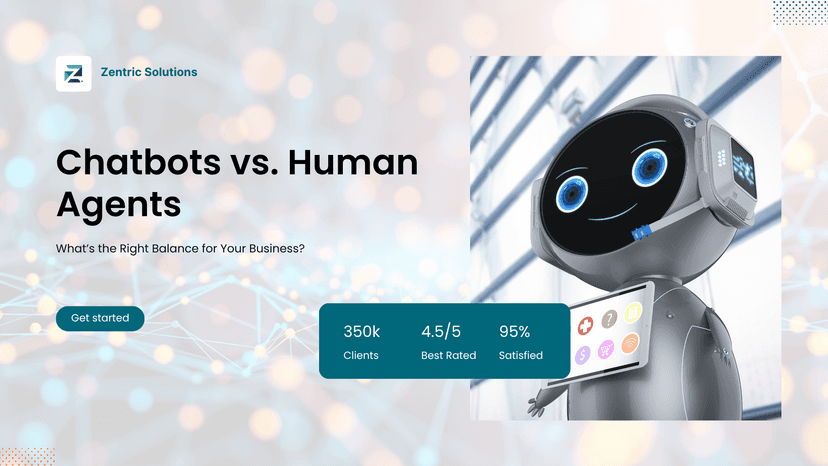
The Ethical Dilemma of AI in Business: Innovation vs. Privacy
At a rate never seen before, artificial intelligence (AI) is revolutionising the corporate sector. AI provides unparalleled innovation prospects, ranging from chatbots and predictive analytics to automated decision-making. However, this quick advancement raises an ethical conundrum: how can companies strike a balance between the need for innovation and the rising demands for ethical responsibility and privacy?
Companies will unavoidably gather enormous volumes of personal data as they use AI to improve consumer experiences, streamline processes, and obtain a competitive edge. This raises significant problems regarding surveillance, permission, and consumer trust. This essay will examine the relationship between privacy and AI advancement, the moral ramifications of this relationship, and practical solutions for handling this difficult situation in an ethical manner.
Introduction to AI in Modern Business
AI is now a vital business tool rather than a sci-fi idea. More than 80% of multinational corporations are incorporating AI into their operations to boost productivity, reduce expenses, and spur innovation, per industry surveys.
AI makes possible:
Targeted recommendations create individualised customer experiences.
Forecasting market trends via predictive analytics.
Automating processes to cut down on manual labour.
Despite these indisputable advantages, ethical discourse is lagging behind the rapid advancement of technology, leaving businesses exposed to hazards to their brand and privacy.
The Rise of AI in Startup and Business Operations
From a future idea, artificial intelligence has developed into a commonplace corporate partner. Businesses are using AI to:
Automate repetitive tasks like scheduling and email sorting.
Analyze data for better decision-making.
Enhance creativity through content generation and brainstorming support.
According to a recent report, productivity is the main reason why 62% of startups currently use AI in their operations.

AI’s Transformative Role Across Industries
Globally, artificial intelligence is radically changing sectors and opening up previously unheard-of possibilities for expansion, effectiveness, and customisation. AI in retail enables dynamic pricing models and personalised product recommendations, enabling companies to anticipate consumer preferences and instantly optimise inventories. In addition to improving the shopping experience, this technology increases consumer loyalty and conversion rates.
AI plays a key role in algorithmic trading and fraud detection in the financial industry. In milliseconds, sophisticated algorithms examine enormous datasets, spotting questionable activity that human analysts could miss. Financial organisations can increase revenues and reduce risks by using AI-powered trading bots to execute high-frequency deals.
An analogous AI revolution is taking place in the healthcare sector. Compared to conventional techniques, predictive diagnostic tools can identify diseases earlier by analysing patient histories and medical images. By monitoring patient progress and assisting physicians with treatment plans, automated technologies enhance results and lower human error.

AI has also been used by marketing to develop highly focused advertising. Companies increasingly monitor customer behaviour on a variety of channels, creating comprehensive profiles that enable the delivery of tailored content. Although this increases sales and engagement, it also places a great deal of focus on data collection, which inevitably raises privacy issues in the larger ethical debate.
Key Benefits of AI for Productivity and Efficiency
- Save time: Automate document summaries, meeting notes, and responses.
- Reduce costs: AI replaces the need for multiple specialized hires in the early stages.
- Improve decision-making: AI tools analyze trends and suggest actionable insights.
- Enhance creativity: AI assists in ideation and content creation for blogs, ads, and pitches.
The Ethical Dilemma of AI in Business
Due to competing priorities, the quick deployment of AI presents a challenging ethical conundrum. On the one hand, companies use data-driven AI solutions to gain a competitive edge and innovate. Customers, on the other hand, want control over their personal data, privacy, and openness.
High-profile privacy violations and international regulatory actions have already resulted from this dispute. In order to prevent abuse, governments and advocacy organisations are now putting pressure on businesses to implement moral AI policies, underscoring the significance of trust in the digital era. Businesses risk financial loss, legal repercussions, and reputational harm if they ignore this problem.

Balancing Innovation with Consumer Privacy
The problem of striking a balance between AI-driven innovation and customer privacy calls for appropriate data practices and strategic decision-making. Large, varied datasets are ideal for AI, but the potential of privacy infractions rises with each new piece of data gathered.
By reducing needless data gathering, implementing clear data usage guidelines, and giving customers control over their personal data, organisations should strive for this balance. While companies that disregard privacy risk regulatory attention and public backlash, those that invest in ethical AI techniques frequently enjoy long-term trust and brand loyalty.
Privacy Risks in AI-Driven Business Models
AI’s reliance on massive data processing introduces serious privacy risks. The most pressing concerns include:
Excessive Data Collection:
Many AI models require constant tracking of consumer behavior across multiple devices, leading to fears of digital surveillance.
Lack of Informed Consent:
Most users don’t fully understand how their data is collected, analyzed, or shared, leaving them vulnerable to unintentional exposure.
Potential Misuse of Data:
Even datasets that are anonymized can sometimes be re-identified, opening the door to identity theft, discrimination, and exploitation.
As businesses expand their AI capabilities, addressing these privacy challenges will be essential to maintain consumer trust and comply with evolving regulations.






